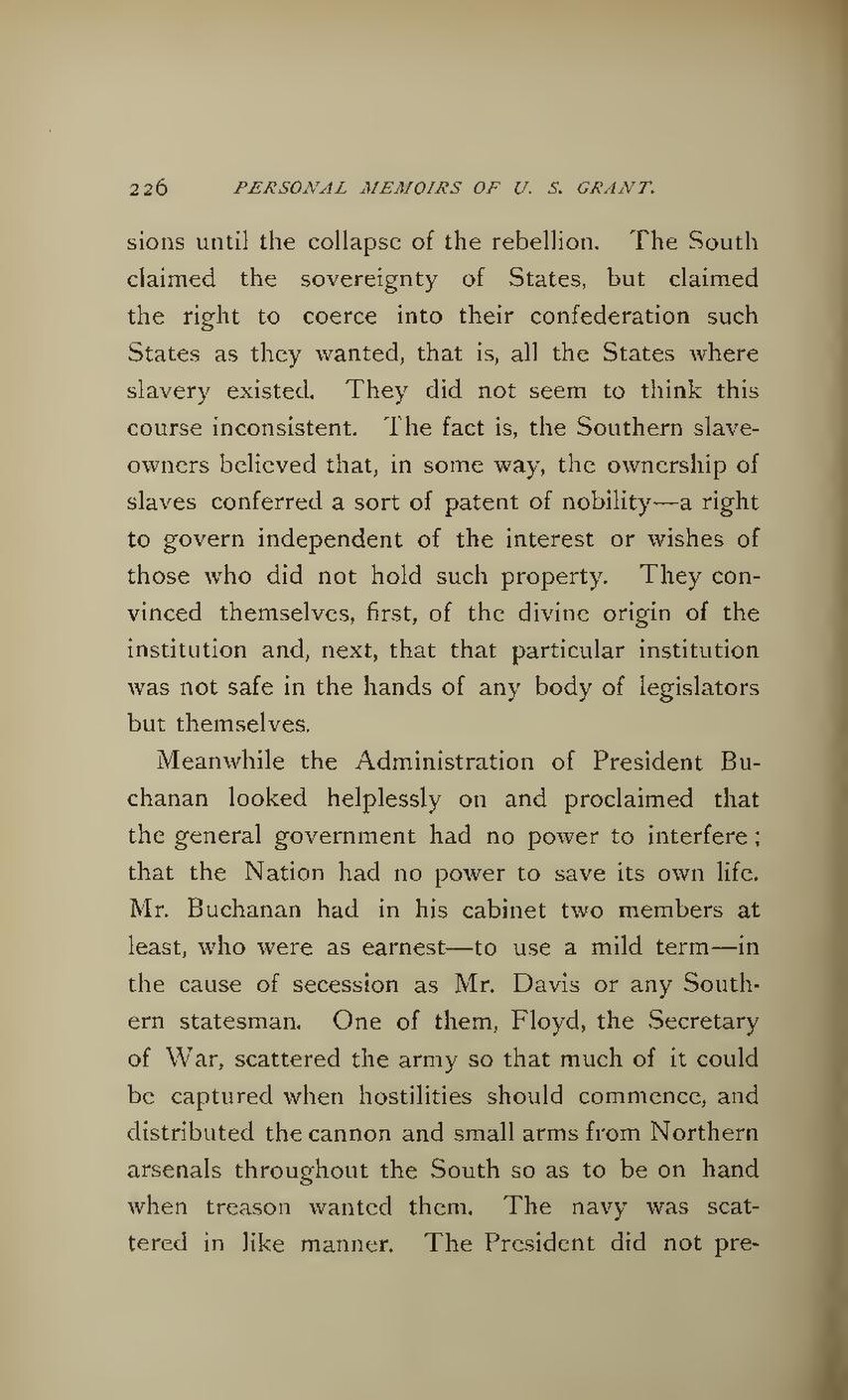sions until the collapse of the rebellion. The South claimed the sovereignty of States, but claimed the right to coerce into their confederation such States as they wanted, that is, all the States where slavery existed. They did not seem to think this course inconsistent. The fact is, the Southern slave-owners believed that, in some way, the ownership of slaves conferred a sort of patent of nobility—a right to govern independent of the interest or wishes of those who did not hold such property. They convinced themselves, first, of the divine origin of the institution and, next, that that particular institution was not safe in the hands of any body of legislators but themselves.
Meanwhile the Administration of President Buchanan looked helplessly on and proclaimed that the general government had no power to interfere; that the Nation had no power to save its own life. Mr. Buchanan had in his cabinet two members at least, who were as earnest—to use a mild term—in the cause of secession as Mr. Davis or any Southern statesman. One of them, Floyd, the Secretary of War, scattered the army so that much of it could be captured when hostilities should commence, and distributed the cannon and small arms from Northern arsenals throughout the South so as to be on hand when treason wanted them. The navy was scattered in like manner. The President did not pre-
